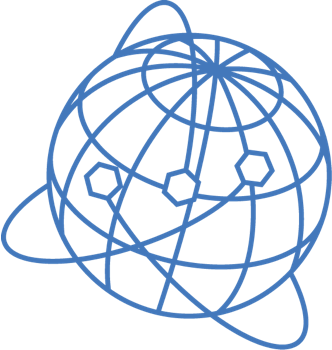Since the fall of the URSS and in light of the « velvet revolution » in Georgia in autumn of 2003, Southern Caucasia (Armenia, Azerbaïdjan, Georgia) has become synonymous of geopolitical changes. With September 11th and the wars in Afghanistan and Iraq, the post-communist transition sees the international community’s interest renewed in this economic and political crossroad. Rebuilding these three countries is in process. In all three countries, elections in 2003 saw the arrival of new political leaders. In the name of the war against terrorism, the three countries as well as NATO, the US and Russia are particularly interested in the region’s security issues, key in dominating the area that today has no common security system. The communist heritage has left strong imprints in the mentalities of people and the reality in the field. The « cousin » wars in Chechenia (Abkhazie, Southern Ossetia, UpperKarabakh) but also the eventual crises in Adjarie, Djavakhtie continue to disfigure the region’s face. The effort to build a state of law is slowed down by old communist reflexes linked to the patrimony of power and its shortcomings in public affairs (crime, electoral frauds, lack of respect of human rights, oppressed opposition). As to the economy, even though the macro-economic data may be encouraging, these three markets still suffer from strong corruption of their elite class, from slow tax and economic reforms and from an endemic poverty. That is also the reason why authoritarian states are appearing, both open and hostile to their integration in the global community.
Copyright © 2024 Centre Thucydide -
Politique de confidentialité -
Gérer votre consentement
Confidentialité
Nous utilisons des cookies sur notre site web pour vous offrir l'expérience la plus pertinente en mémorisant vos préférences et vos visites répétées. En cliquant sur "Accepter", vous consentez à l'utilisation de TOUS les cookies. Vous pouvez sinon paramétrer vos choix en cliquant sur "Paramètrer"
Gérer votre consentement
Confidentialité
Ce site web utilise des cookies pour améliorer votre expérience lorsque vous naviguez sur le site. Parmi ceux-ci, les cookies qui sont catégorisés comme nécessaires sont stockés sur votre navigateur car ils sont essentiels pour le fonctionnement des fonctionnalités de base du site web. Nous utilisons également des cookies tiers qui nous aident à analyser et à comprendre comment vous utilisez ce site web. Ces cookies ne seront stockés dans votre navigateur qu'avec votre consentement. Vous avez également la possibilité de refuser ces cookies. Mais la désactivation de certains de ces cookies peut affecter votre expérience de navigation.
Les cookies publicitaires sont utilisés pour fournir aux visiteurs des annonces et des campagnes de marketing pertinentes. Ces cookies suivent les visiteurs à travers les sites Web et collectent des informations pour fournir des annonces personnalisées.
Les cookies analytiques sont utilisés pour comprendre comment les visiteurs interagissent avec le site web. Ces cookies permettent de fournir des informations sur les métriques le nombre de visiteurs, le taux de rebond, la source de trafic, etc.
Les cookies fonctionnels aident à réaliser certaines fonctionnalités comme le partage du contenu du site web sur les plateformes de médias sociaux, la collecte de commentaires et d'autres fonctionnalités tierces.
Les cookies nécessaires sont absolument indispensables au bon fonctionnement du site web. Ces cookies assurent les fonctionnalités de base et les caractéristiques de sécurité du site web, de manière anonyme.
Les autres cookies non catégorisés sont ceux qui sont en cours d'analyse et qui n'ont pas encore été classés dans une catégorie.
Les cookies de performance sont utilisés pour comprendre et analyser les indices de performance clés du site Web, ce qui permet d'offrir une meilleure expérience utilisateur aux visiteurs.


